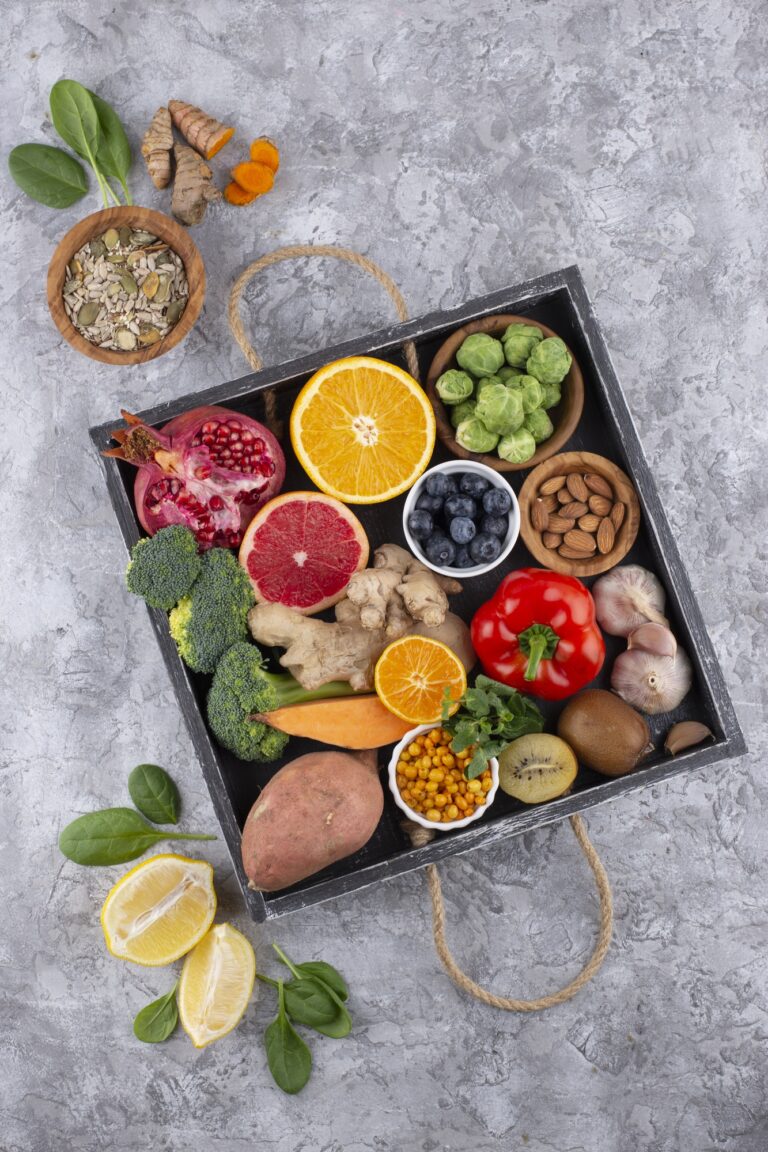In our quest to look good, we often forget that we need to start from the inside out. Most health problems are caused by poor nutrition. To maintain our bodies in good health, we need to pay more attention to our diet by including more alkaline foods.
To be as helpful as possible, we’ve compiled a list of these foods:
Alkaline Vegetables
- Carrots: Help with daily care for the body and boost immunity (especially vitamins A and C).
- Beets: Aid in detoxifying the body and are rich in magnesium, which regulates blood vessel health.
- Broccoli: Extremely rich in vitamins E, A, B1, B2, B3, and B6. They are a primary source of chromium, manganese, iron, magnesium, potassium, selenium, zinc, and beta-carotene.
- Spinach: A champion in vitamin K content, essential for bone strength and blood coagulation.
- Cauliflower: Naturally high in fiber and B vitamins, as well as antioxidants and phytonutrients that contribute to its health benefits.
- Cabbage: Boosts the immune system, aids in detoxifying the body, and helps burn fat.
- Lettuce: Contains a significant amount of beneficial vitamins and trace elements.
- Eggplant: High in dietary fiber, antioxidants, vitamins, and minerals essential for health and proper body function.
- Tomatoes: Contain all four major carotenoids—alpha and beta-carotene, lutein, and lycopene. They are beneficial individually, but their combined properties are even stronger.Potatoes: Rich in starch, which helps lower cholesterol, and packed with potassium.
- Asparagus: Has cleansing, kidney-stimulating, and laxative properties.
- Pumpkin: High in potassium, copper, manganese, iron, magnesium, phosphorus, protein, carbohydrates, vitamins C, E, B2, B3, B6, and folic acid.
- Zucchini: Known for aiding in weight loss and improving vision. They are suitable for asthma due to their high content of vitamin C, carbohydrates, proteins, and fiber.
- Turnips (white and red): Rich in vitamin K, potassium, and iron, as well as other rare and beneficial compounds.
- Bell Peppers: Low in calories and rich in various essential vitamins and minerals.
- Parsnips: Nutrient-dense with high levels of beneficial nutrients and low calorie content.
- Garlic: A broad-spectrum antimicrobial that helps combat many bacterial and fungal infections.
- Onions: Contain antioxidants and compounds that fight inflammation, reduce triglycerides, and lower cholesterol levels.
- Celery: Beneficial for the heart and blood vessels as it reduces the risk of heart attack and stroke.
- Peas: Their high content of folic acid, vitamins B6 and K, and lutein makes them exceptionally beneficial.
Alkaline Fruits
- Lemons: Rich in vitamin C, which boosts the immune system.
- Avocado: Contains over 25 essential nutrients, including vitamins A, B, C, E, and K, as well as iron, phosphorus, copper, potassium, and magnesium.
- Pomegranate: Believed to help prevent cancer, boost immunity, and enhance fertility.
- Watermelon: Its high water content helps keep the body hydrated. It is an excellent source of carbohydrates, proteins, fiber, and vitamins C, A, and B.
- Grapefruit: Supports cardiovascular health by helping eliminate old red blood cells.
- Pineapple: High in manganese, which supports antioxidant defenses, as well as B vitamins that aid in energy production.
Spices
- Cayenne pepper
- Stevia
- Cinnamon
- Molasses
Grains
- Quinoa
- Einkorn wheat
- Buckwheat
Additional Alkaline Foods
- Almonds, hazelnuts, cashews, sunflower seeds
- Coconut oil, olive oil
Foods to Avoid
The following acidic food groups should be minimized:
- Processed foods (containing additives)
- Аnimal products, particularly meat, dairy, and eggs
- Sweets (with refined sugar), carbonated drinks, and alcohol
- Products made from white wheat flour
Adding alkaline foods to your menu is always a good idea from a health perspective.
